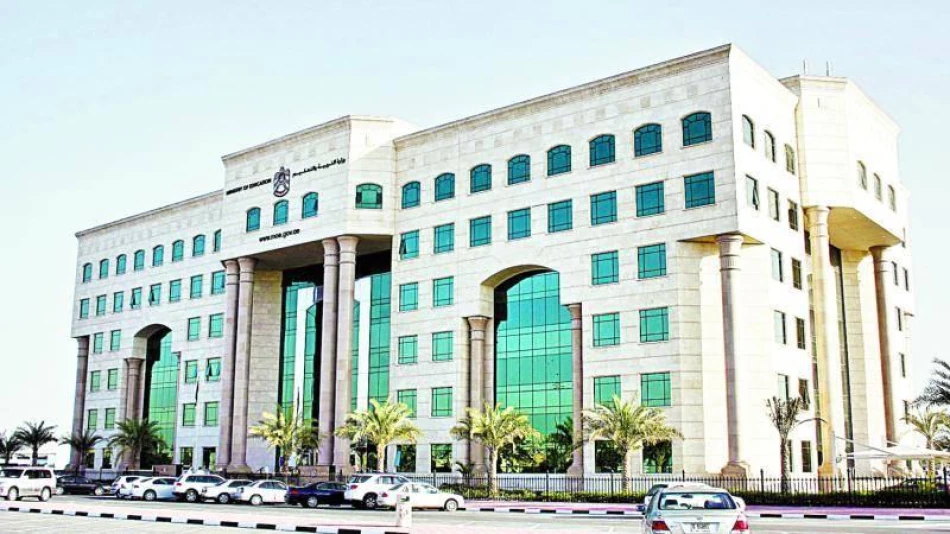
Ministry of Education Releases Approved List of Digital Textbooks for Schools
UAE Accelerates Digital Education Revolution with Comprehensive E-Book Initiative
The UAE Ministry of Education has unveiled an extensive digital textbook program covering all grade levels from 1-12, marking a decisive shift toward fully digitized learning environments. This comprehensive initiative, spanning multiple educational tracks and regions, represents more than a simple transition from paper to pixels—it signals the Emirates' commitment to building a knowledge economy that can compete with global education leaders like Singapore and South Korea.
Scope and Scale of the Digital Transformation
The ministry's announcement covers both public and private schools following the national curriculum across Dubai, Northern Emirates, and Abu Dhabi sectors. The digital library encompasses four distinct educational pathways: general, advanced, applied, and elite tracks, ensuring that students across different academic trajectories have access to appropriate digital resources.
Core subjects include Arabic and English language instruction, moral education, and specialized fields such as health sciences, social studies, computer science, and creative design. The inclusion of entrepreneurship courses and applied studies reflects the UAE's strategic focus on developing a diversified, innovation-driven economy.
Cultural Integration in Digital Learning
Notably, the curriculum maintains strong connections to Emirati heritage through specialized content on UAE traditional crafts and theater programs. This approach mirrors Singapore's successful model of combining technological advancement with cultural preservation, ensuring that rapid digitization doesn't erode national identity.
Strategic Economic Implications
This digital education overhaul positions the UAE to capture a larger share of the global education technology market, estimated to reach $377 billion by 2028. By developing comprehensive digital learning infrastructure, the Emirates is creating conditions for potential export of educational technology solutions to other Middle Eastern and developing nations.
The initiative also addresses practical economic concerns for families. Digital textbooks eliminate recurring costs associated with physical book purchases and reduce the financial burden on households, particularly important as the UAE continues to attract expatriate families seeking quality education options.
Competitive Positioning
The UAE's move follows similar digital education initiatives in Estonia and Finland, countries that have achieved remarkable educational outcomes through technology integration. However, the Emirates' approach is more comprehensive in scope, covering all grade levels simultaneously rather than implementing gradual rollouts.
Implementation Challenges and Opportunities
The success of this initiative depends heavily on robust digital infrastructure and teacher training programs. The UAE's advantage lies in its existing smart city initiatives and high internet penetration rates, providing a solid foundation for digital learning platforms.
Parent engagement tools represent a particularly innovative aspect of the program. By providing digital resources that enable real-time monitoring of student progress, the system creates accountability mechanisms that could significantly improve educational outcomes.
Long-term Vision and Market Impact
This digital transformation aligns with the UAE's Vision 2071 goal of becoming the world's best country by the centennial of its founding. The emphasis on entrepreneurship education and applied studies suggests recognition that future economic success requires citizens capable of creating value in knowledge-intensive industries.
The initiative also positions the UAE as a testing ground for educational technology companies seeking to scale solutions in emerging markets. Success here could attract significant investment in the country's growing edtech sector, potentially establishing Dubai or Abu Dhabi as regional hubs for educational innovation.
By eliminating geographical and temporal constraints on learning access, this digital education framework creates conditions for accelerated human capital development—arguably the most critical factor for sustained economic growth in an increasingly automated global economy.
Most Viewed News

 Omar Rahman
Omar Rahman






